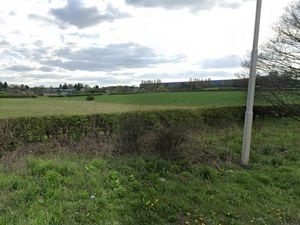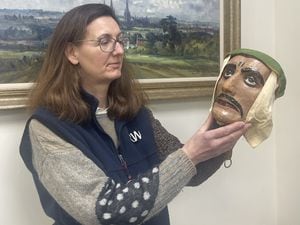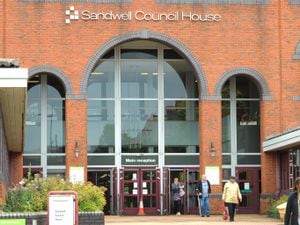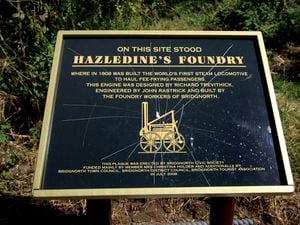Black Country to unite with Birmingham
The Black Country and Birmingham will join forces in a single, combined authority to try to gain more powers and funding, the Express & Star can reveal.
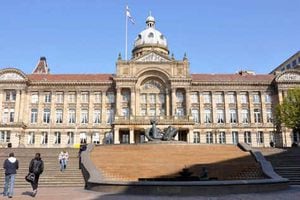
But the controversial name Greater Birmingham is being blocked in favour of the all-encompassing West Midlands Combined Authority or Birmingham and the Black Country.
Wolverhampton, Walsall, Sandwell and Dudley Councils are teaming up with Birmingham City Council after their leaders thrashed out a deal.

What is this combined authority?
Council leaders in Birmingham and the Black Country want to work together.
They are creating a board where they discuss and vote on things that go beyond their individual borders.
Why?
Ever since the Scottish independence referendum, there has been a call for more powers for English regions.
Council leaders say without a joint body they will lose out to areas like Greater Manchester, which has had one for years?
Don't they work together already?
The Black Country does. And Birmingham works with parts of Staffordshire such as Lichfield and Cannock Chase as well as Wyre Forest in Worcestershire.
Why work with Birmingham then?
The thinking is these areas are better off working together. And they share a lot of the same issues, particularly around transport, regeneration and skills.
Will the Black Country be absorbed into Greater Birmingham?
Council leaders say not. The name Greater Birmingham is off the table.
It gets used by people like Andy Street, the managing director of John Lewis, because he chairs a body called the Greater Birmingham and Solihull Local Enterprise Partnership.
But the Black Country isn't a part of that.
Is this going to mean I pay more council tax?
No. The plan is not for it to have any authority to put a levy on the council tax, like the police and fire service can.
Will councillors get generous allowances?
No. The council leaders who sit on the board are already paid through their own individual local authorities.
What powers will the combined authority have?
That's still up for debate. A lot of it will depend on who wins the General Election and what they offer.
But the thinking is that whether it's the Tories, Labour or another coalition, ever since Scotland voted 'no' in exchange for greater powers that it's time for the English to have more of a say.
The councils would all continue independently but their leaders or chosen representatives would sit on a new board that looks at issues of joint concern, such as transport, regeneration, education and skills.
The move is part of a plan to get greater decision-making powers over funding and more control for councils without the need to go cap in hand to Whitehall for access to potentially billions of pounds of public money.
It comes after the Prime Minister promised English votes for English laws in the wake of the Scottish independence referendum, in which the Scots were promised an even bigger say over their own affairs.
Labour is also vowing to grant more power to regions.
Council leaders said unless they joined together on matters that affected the whole West Midlands, they would be left behind and miss out on funding to areas like Greater Manchester.
The combined authority would not involve a new tier of politicians and there was a vow that it would not cost any more money to run, as existing councillors would not get any top up on their current allowances for sitting on its board.
It would aim to work together with colleges and other organisations so all the different boroughs are pulling together rather than competing.
Councillor Darren Cooper, leader of Sandwell Council, had imposed a deadline of Christmas to complete the deal. He said: "We can't have a situation where we have more courses of one profession than there are jobs."
And he said the name Greater Birmingham was off the table.
"I don't support that. Neither will the rest of the Black Country," Councillor Cooper said.
"By combining together the West Midlands has a population of more than 2.5 million people which will attract more investment than each of the areas working alone. In a nutshell, a Combined Authority will mean more money comes into the area for the benefit of people living in the West Midlands."
Councillor David Sparks, leader of Dudley Council, said: "We need a combined authority in the West Midlands to compete with other areas which have already gone down this route. There is evidence from around the country, such as in Greater Manchester, that where councils work in a more coordinated way they secure significantly greater proportions of national government investment for their area."
And Councillor Roger Lawrence, leader of Wolverhampton City Council, said: "Under our proposals, each individual council will retain its own identity and role. We will be holding further talks to look at the details but Combined Authorities are specifically set up to improve transport links and generate additional income to boost the local economy which we would all welcome."
Councillor Sean Coughlan, leader of Walsall Council, said: "Improving skills and increasing job opportunities for local people are priorities for every council and the work of the Combined Authority will do just that. We are all looking forward to building on the agreement we have made so that the Black Country and wider West Midlands can benefit from increased funding."
Councillor Sir Albert Bore, leader of Birmingham City Council, said:"We are pleased to have come together to reach this agreement which will see us work closely with our neighbouring authorities to attract more investment into the region. We would also welcome and value Coventry and Solihull joining us in exploratory talks about the undoubted benefits of a Combined Authority."

